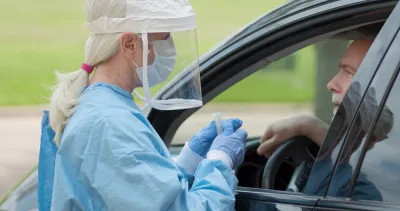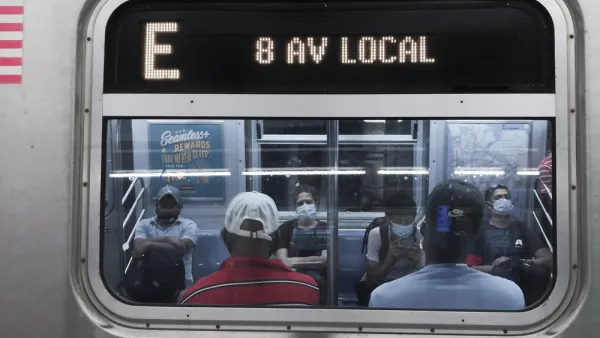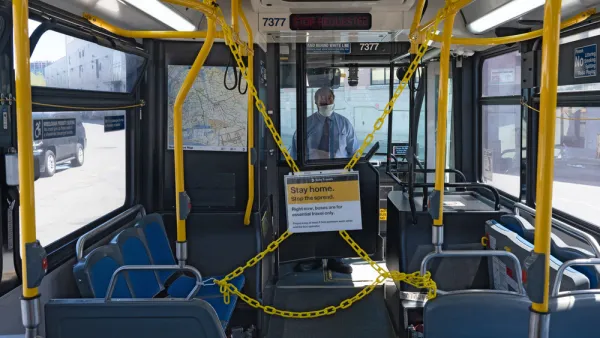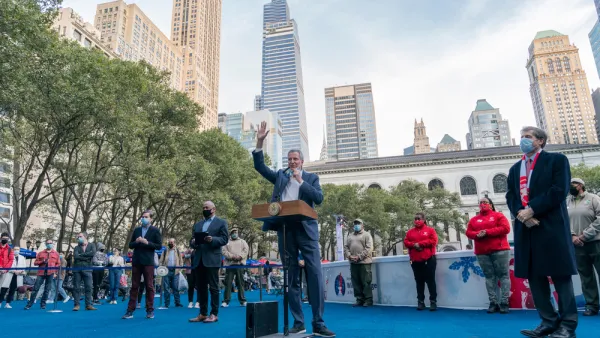Is government too efficient to protect us from epidemics?

In ordinary times, public services should be run as efficiently as possible. So if it is easy to find a seat on a subway, perhaps a city should run subway trains less often, or at least redistribute trains to routes that are packed with people. Similarly, if crime goes down, it makes sense to close jails and prisons, because a lightly-used jail is a waste of public money. Right? Maybe not.
In early March, New Yorkers responded to the coronavirus epidemic by avoiding the subways and working from home. Quite understandably, New York's transit agency has responded to a decline in ridership by cutting service. This saves the transit agency money, but makes trains more crowded. Unfortunately, conventional medical wisdom is that people should be standing at least six feet apart to minimize their risk of coronavirus infection. But if trains are packed, obviously this is impossible. So from a health standpoint, the answer is redundancy—to run more trains than the city really needs, so that people can stand a few feet apart from each other.
Similarly, in recent years New York governments have been closing down jails and prisons—partially in response to declining crime, partially in response to progressive concerns about alleged overuse of incarceration. The state has closed down 17 prisons since 2010; this no doubt saves the taxpayers money, but also means that prisons stay crowded, again increasing the risk of coronavirus infection. Defense attorneys are now starting to use this risk as an argument for allowing even alleged murderers to avoid pretrial detention, and for releasing people who are already in prison. (This may turn out to be counterproductive if the persons released either are already infected or if they become homeless, which might make them more likely to be infected.)
It thus appears that there is something of a trade-off between efficient government and controlling the coronavirus epidemic. If our first priority is to control the epidemic or to plan for future epidemics, we need to spend money on redundant facilities: extra subways and jails to prevent overcrowding. But this may not be easy: if social distancing creates a significant economic downturn, states may not have the money to maintain even the overcrowded facilities that currently exist, let alone new ones to reduce overcrowding.* I do not have any short-run answers to these tradeoffs, but in the long run, the surviving government officials might need to think about the facilities we will need more of in the next epidemic, and to buy more of them than we need in the short run.
*For that matter, they may not be able to pay for the medical equipment they need to cure the diseased—but that is a discussion unrelated to land use or transportation.

Analysis: Cybertruck Fatality Rate Far Exceeds That of Ford Pinto
The Tesla Cybertruck was recalled seven times last year.

National Parks Layoffs Will Cause Communities to Lose Billions
Thousands of essential park workers were laid off this week, just before the busy spring break season.

Retro-silient?: America’s First “Eco-burb,” The Woodlands Turns 50
A master-planned community north of Houston offers lessons on green infrastructure and resilient design, but falls short of its founder’s lofty affordability and walkability goals.

Test News Post 1
This is a summary

Analysis: Cybertruck Fatality Rate Far Exceeds That of Ford Pinto
The Tesla Cybertruck was recalled seven times last year.

Test News Headline 46
Test for the image on the front page.
Urban Design for Planners 1: Software Tools
This six-course series explores essential urban design concepts using open source software and equips planners with the tools they need to participate fully in the urban design process.
Planning for Universal Design
Learn the tools for implementing Universal Design in planning regulations.
EMC Planning Group, Inc.
Planetizen
Planetizen
Mpact (formerly Rail~Volution)
Great Falls Development Authority, Inc.
HUDs Office of Policy Development and Research
NYU Wagner Graduate School of Public Service





























